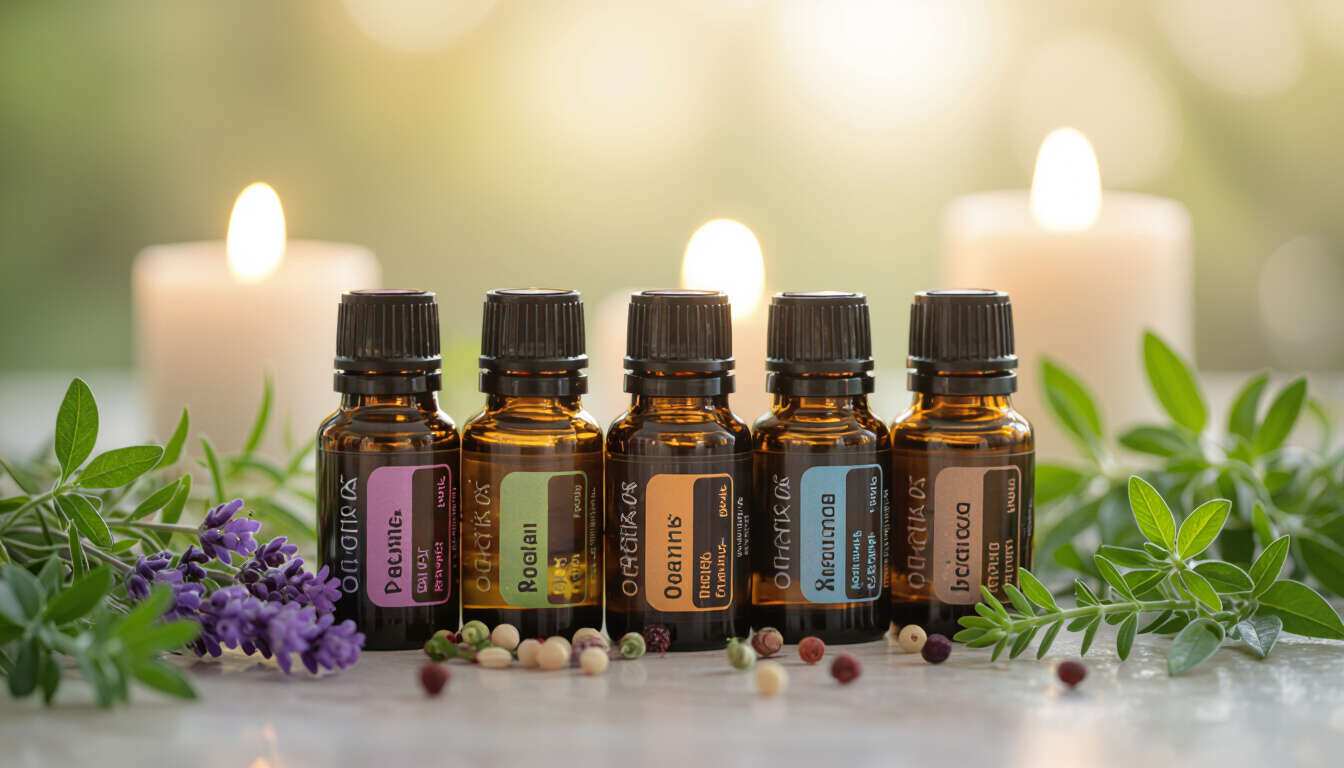Aromatherapy for Achieving Calm
 by Shanie Goodwin
by Shanie Goodwin
Aromatherapy offers a natural way to foster calm through essential oils and scents. This approach can ease daily tensions and improve overall well-being, making it a valuable tool for relaxation and mental clarity in everyday life.

Aromatherapy has gained attention as a method to promote calm in a busy world. This practice involves using essential oils from plants to influence mood and reduce anxiety.
One key aspect is how scents interact with the body's senses. For instance, certain oils like lavender can help soothe the mind by triggering relaxation responses. lavender is often recommended for its ability to ease restlessness.
In practice, people might use a diffuser to spread these oils into the air. This allows the aroma to create a peaceful environment. diffuser methods are simple and effective for home or office settings.
Another oil, chamomile, provides gentle effects that support emotional balance. Studies suggest it may lower heart rate and promote better sleep. chamomile works well in teas or topical applications.
Real-life scenarios show its benefits. A person dealing with work pressures might inhale peppermint oil to clear the mind. This can lead to improved focus and less overwhelm.
Nutrition plays a role too, as combining aromatherapy with healthy eating enhances results. For example, pairing it with balanced meals supports overall health.
Exercise routines can incorporate aromatherapy as well. A walk in a garden with aromatic plants adds to the calming experience. exercise in fresh air, combined with scents, boosts endorphins.
Sleep hygiene is another area where this practice shines. Using oils before bed can improve rest quality. Research from sleep studies indicates that certain aromas help regulate sleep patterns.
The psychological side involves how smells connect to memories and emotions. This link can turn a stressful day into a moment of tranquility.
To start, begin with basic tools like oils and a simple device. Create a routine that fits daily life, such as evening rituals.
Lists of popular oils include:
- Lavender for general calm.
- Eucalyptus for clear breathing.
- Bergamot for uplifting mood.
Over time, consistent use builds resilience against stress. Many find that regular sessions lead to sustained well-being.
In essence, this approach encourages a holistic view of health. By focusing on natural elements, individuals can foster a more balanced life.
